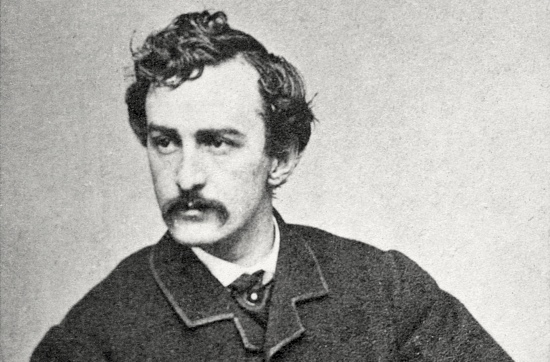Civil War: A chance encounter with John Wilkes Booth
100 miles north of Richmond, 17 months before he was assassinated, President Lincoln sat watching a young actor named John Wilkes Booth in a newly-renovated Ford’s Theatre.

For those of you who read this column regularly, you know my only two self-imposed rules are to tell stories that 1) happen in the general vicinity of Richmond and 2) follow the “150 years ago” chronology of the Civil War. Last month’s Halloween post about “ghostly” Civil War spots in Richmond broke my chronology rule. Now in November, I’m going to break my Richmond rule to tell you a story that took place in the nation’s capital. Some rules are just meant to be broken, right?
Some of the most fascinating stories of the Civil War revolve around the final weeks of Abraham Lincoln’s life and the plot to assassinate him, led by the actor John Wilkes Booth. Lincoln’s assassination while watching a play in Ford’s Theatre is a familiar story to many, but when you dive into the details, there are many lesser-known points, subplots, and stories. Today’s story takes place about 100 miles north of Richmond in the Union’s capital city of Washington D.C.
In late 1863, John T. Ford had recently reopened his newly-renovated “Ford’s New Theatre” after a damaging fire. The grand reopening in August brought sell-out crowds, and Ford’s Theatre quickly became an established entertainment destination in the city for locals and tourists alike. Shortly after opening, Ford’s Theatre did a production of The Marble Heart, a melodramatic tragedy starring a 24-year-old John Wilkes Booth. Booth played the role of Raphael, a villain.
On November 10th, Lincoln attended a performance of The Marble Heart, sitting in the same box where he would be assassinated just 17 months later. Lincoln was joined by his wife and a handful of guests that night. One guest was Mary B. Clay, the daughter of the U.S. minister to Russia, who noticed twice during the play that when Booth’s character shouted a threatening line, he seemed to be directing it toward Lincoln. It wasn’t well known that Booth was a Confederate sympathizer at this time, but his allegiances were set in his heart, feeling great disdain toward Lincoln. After Booth again seemed to point to Lincoln during one of his angry lines, Clay leaned over to Lincoln and remarked, “Mr. Lincoln, it looks as if he meant that for you.” Lincoln replied, “Well, he does look pretty sharp at me, doesn’t he?”
Despite this, Lincoln seemed to be impressed by Booth’s performance, going so far as to extend an invitation to meet him at the White House, which Booth evaded. According to the book Inside Lincoln’s White House, actor Frank Mourdant recalled hearing of Lincoln’s appreciation for Booth:
Lincoln was an admirer of the man who assassinated him. I know that, for he said to me one day that there was a young actor over in Ford’s Theater whom he desired to meet, but that the actor had on one pretext or another avoided any invitations to visit the White House. That actor was John Wilkes Booth.
While Lincoln would see Booth perform again in other shows, the two men never met. There in that same box in Ford’s Theatre on the fateful night when he was shot while watching the play, Lincoln likely would have had no way of knowing that his assassin was the man whose performances he admired so much.
-
Recommend this
on Facebook -

Report an error
-

Subscribe to our
Weekly Digest




There are 2 reader comments. Read them.